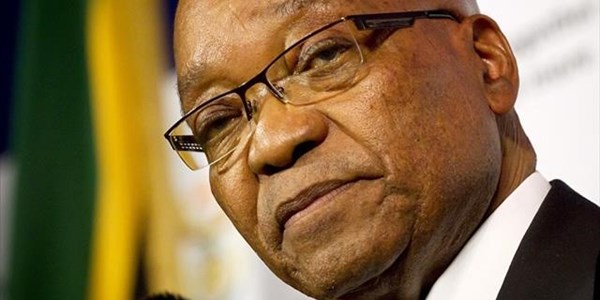National
Six key findings of arms deal commission─── 12:50 Thu, 21 Apr 2016

Johannesburg - President Jacob Zuma on Thursday released the findings of the Seriti Commission of Inquiry into the 1999 multi-billion rand arms deal, announcing there had been no fraud and corruption involved in the procurement process.
Zuma appointed the commission in September 2011, after the Western Cape High Court was asked in 2009 to set up an independent judicial inquiry into alleged corruption related to the arms deal.
The commission began its hearings in August 2013.
The arms deal saw government acquiring, among other items, 26 Gripen fighter aircraft, 24 Hawk lead-in fighter trainer aircraft for the SA Air Force, and frigates and submarines for the SA Navy.
The president said the commission had concluded that there was no room for it to "draw adverse inferences, inconsistent with the direct, credible evidence presented to it".
"Government had been of the view that any findings pointing to wrongdoing should be given to law enforcement agencies for further action. There are no such findings and the Commission does not make any recommendations," said Zuma. Here are the commission's six findings: 1. Did any person or persons improperly influence the awarding or conclusion of any of the contracts? "The commission found that the evidence presented before it does not suggest that undue or improper influence played any role in the selection of the preferred bidders, which ultimately entered into contracts with the government," the president said. 2. Was any contract concluded through the arms deal tainted by any fraud or corruption? Zuma said that, according to the commission, widespread allegations of bribery, corruption and fraud in the arms procurement process, especially in relation to the selection of the preferred bidders and costs, had found no support or corroboration in the evidence, oral or documentary, placed before it. There was also no evidence found through the commission's own independent inquiries. According to the commission, large payments made to consultants gave an impression that the money may have been destined for decision makers in the arms deal, and that they may have been bribed. The fact that some consultants knew or had personal contact with senior politicians in government was also cited as corroboration.
"The commission states that not a single iota of evidence was placed before it, showing that any of the money received by any of the consultants was paid to any officials involved in the strategic defence procurement package, let alone any of the members of the inter-ministerial committee that oversaw the process, or any member of the Cabinet that took the final decisions, nor is there any circumstantial evidence pointing to this," Zuma said.
"The commission states that the preferred bidders confirmed that the money was for the consultant's services and nothing else."
Some of the individuals implicated in the allegations of wrongdoing testified during the commission and denied the allegations.
Some of those who appeared before the commission were former president Thabo Mbeki, and former ministers Trevor Manuel, Alec Erwin, Mosiuoa Lekota and Ronnie Kasrils.
The commission found that none of them had been discredited as a witness.
Other than the Lead-in Fighter Trainer (LIFT) programme, the inter-ministerial committee had accepted, unaltered, the results of the evaluations produced by the technical teams and recommended to the full Cabinet, and the preferred bidders identified by the technical evaluations, according to the commission.
Where it had taken a different decision, it had given full reasons.
"Moreover, says the commission, there was no evidence that such decision was tainted by any improper motives or criminal shenanigans," said Zuma.
"There was also no basis whatsoever for disbelieving the evidence submitted by the members of the Inter- Ministerial Committee in this regard."
3. Did the off-sets anticipated to flow from the arms deal materialise?
Zuma said the commission found that it was fair to conclude that the anticipated offsets had substantially materialised.
"Adequate arrangements are in place to ensure that those who have not met their obligations, do so in the immediate future," he said.
4.Did the country need the arms deal? Zuma announced that the commission had found that the strategic defence procurement package was needed. "[It found that] it was necessary for the South African National Defence Force to acquire the equipment it procured in order to carry out its constitutional mandate and international obligations of peace support and peace-keeping," he said.
5.Were the arms and equipment acquired underutilised or not utilised at all? The commission found that all the arms and equipment acquired were well utilised, said Zuma.
6. Did job opportunities anticipated to flow from the arms deal materialise? According to the commission, the evidence tendered before it indicated that the projected number of jobs to be created was achieved. "The commission states that the probabilities are that the number of jobs created or retained would be higher than 11 916," said Zuma.
- News24.com













